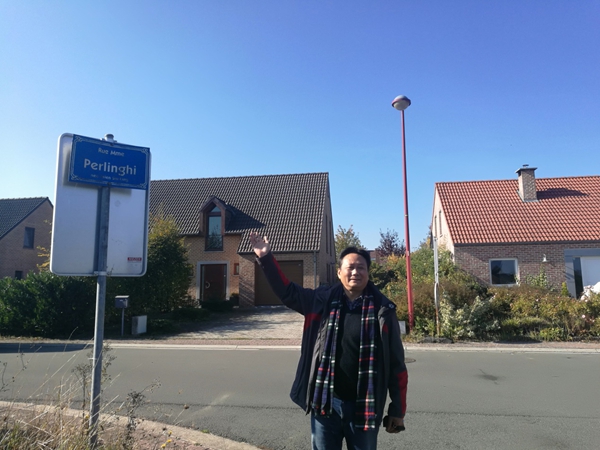

"When I was given the task of interceding with the occupying authorities on behalf of the condemned, I realized that I was fighting for unfortunate people who had been subjected to the most odious arbitrariness," Qian said when she was awarded the medal.
However, to date, few people know of her deeds. Forget Me is believed to be the first such book about this brave but modest woman.
Xu got to know about Qian back in 2002, through Zhang Yawen, writer of A Chinese Woman Under Gestapo Gunpoint, a novel based on Qian's story. A TV series of the same title was also screened. Xu, then a TV station director in Yixing city, Jiangsu province-also the hometown of Qian-wanted to make a documentary on this great woman. He made an overseas call to Qian.
"I told Qian that someday we'd go to Brussels to make a documentary about her, but it's a pity that I failed to keep my promise before she died in 2008," Xu recalls. However, he did visit Qian's former residence, met with people who knew her and decided to write a book about her.
Qian left for Europe to study chemistry in Belgium at the Catholic University of Leuven at a very young age. She then married a Belgian doctor, after breaking her engagement to her Chinese fiance, and they went to live in Herbeumont, a small town 160 kilometers away from Ecaussinnes.
The first life that Qian saved was that of a friend's son-in-law, who had been condemned to death, when she was a village clinic operator in Herbeumont in 1940. Qian realized that she knew of the German general Alexander von Falkenhausen, who was in charge of the occupying forces in Belgium at the time. He was a friend of one of her cousins.
Qian sent a telegram to the general, begging him to release the Belgian youth for humanitarian reasons. She also decided to visit the general in person-undertaking the 160 km journey to his office in Brussels-taking with her signed photographs and letters about him given to her by her cousin. After much persuasion, the general finally agreed to use his authority to spare the youth.
Four years later, Qian saved 96 more lives in much the same way. Despite being pregnant with her first child, she again traveled to visit the general and asked him for help. Once again he acquiesced. Three days later, all 96 people were released.
In an almost unbelievable twist of fate, Qian's persuasiveness didn't stop there. After the war, she actually pleaded for, and saved, the general's life. "Her compassion went both ways," Xu explains. "She did not just save prisoners facing death sentences, but also tried her best to plead for the general at the military court, which was far more difficult for a woman with little social influence."